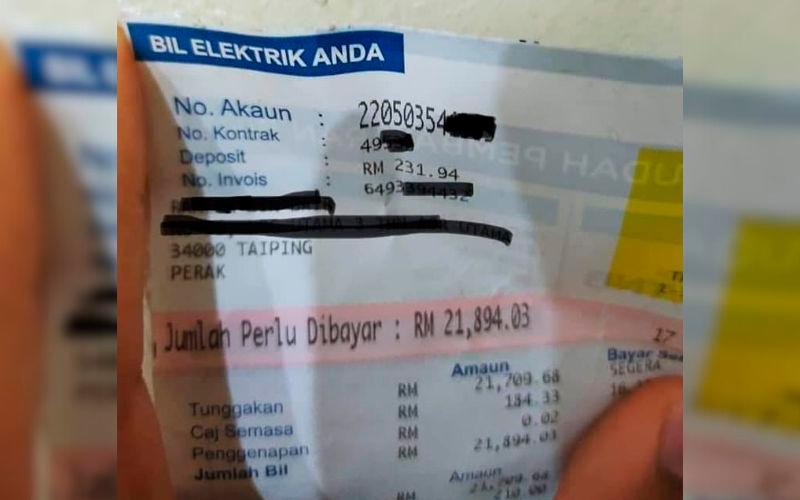PETALING JAYA: Renting a house is usually a straightforward process, but ensuring there are no outstanding bills before a tenant vacates the premises can be a cumbersome task.
In a recent incident, a tenant vacated a residence after four years and left an electricity bill of RM21,894.03.
The matter was discovered by real estate agent Nor Robiah Abd Rahman, who successfully bid for the house, which was foreclosed.
“After successfully bidding for the house, my husband and I met the tenant to address various matters and he consented to vacate the premises within two months.
“We were shocked when we discovered there was an outstanding electricity bill for almost RM22,000. We have tried contacting the previous owner to sort out the matter, but he has not responded to us.”
Nor Robiah said as a real estate agent, she is aware that in situations like this, the homeowner bears the consequences of unpaid bills and must settle the debt.
Speaking to theSun, Tenaga Nasional Berhad (TNB) group corporate communications department spokesperson confirmed the new homeowner approached TNB on Jan 7 to discuss the outstanding electricity bill.
“Legally, we cannot enter a secured property without the consent of the owner, even if a supply disconnection notice has been issued,” the spokesperson said.
She also said additional late payment charges and penalties will be added to the bill if no payment is received within a 30-day grace period from the billing date.
“The subsequent monthly bill will serve as a disconnection notice and remind the owner to pay the accumulated arrears,” she said, adding that Nor Robiah will not have to bear any responsibility for outstanding electricity bills provided she submits the new ownership documentation when registering a new TNB account.
Real estate lawyer Sim Wen Yee said to prevent such incidents, homeowners should include a clause in the tenancy agreement to ensure all utility contracts are transferred to the tenant’s name.
“This will establish clear contractual terms that (specify) the responsibility for utility bills during the tenancy period. This way, homeowners do not have to be fearful if the tenant fails to pay the bills,” she said.
Sim added that homeowners should ensure tenants promptly pay their utilities bills each month.
“Owners should ensure they conduct thorough due diligence, making sure all bills are paid promptly. Any outstanding bills must be (brought to the attention of) the tenant, with failure to pay becoming a condition to terminate the tenancy agreement.”
Sim suggested homeowners send three reminders to the tenant to ensure utility payments are made without delay.









